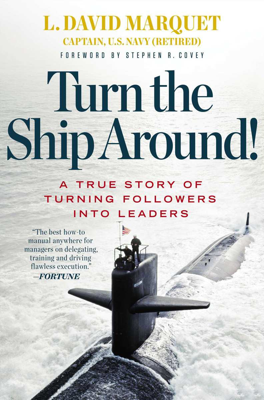Under Way on Nuclear Power
Focus on Operational Excellence over Error Avoidance
David Marquet highlights a critical shift in focus aboard the USS Santa Fe: from simply complying with regulations and avoiding mistakes to striving for operational excellence. This shift is exemplified during the preparation for an underway operation where the crew's adherence to meticulous but irrelevant charting procedures is identified as inefficient and not aligned with the actual mission requirements.
Mechanism: Short, Early Conversations Make Efficient Work
Marquet introduces a mechanism termed Short, Early Conversations Make Efficient Work to address inefficiencies in the mission preparation process. This involves:
Direct Communication: Engaging in quick, direct discussions with the navigator and assistant navigator during the chart preparation phase to ensure alignment with the operational objectives.
Empowering Crew Participation: Instead of following a strict top-down review, engaging lower-ranking crew members like quartermasters in discussions about the operational relevance of their tasks, encouraging them to voice suggestions and take part in decision-making.
Consistency in Chart Legend: Addressing inconsistencies such as the use of different colors in chart legends, which could lead to confusion during operations. A standardized color scheme is suggested to enhance clarity and efficiency.
Overcoming Trust Issues and Enhancing Tactical Understanding
A common problem encountered with the introduction of the Short, Early Conversations mechanism was the perception of a lack of trust among the crew. Marquet clarifies that trust refers to believing in the crew's intentions and sincerity, whereas assessing the suitability of tactical decisions (like ship positioning) involves understanding external factors such as physics and enemy movements, which do not relate to personal trust.
Questions to Consider
At the chapter's conclusion, Marquet poses reflective questions for leaders to consider:
- How to encourage early, directive interactions without fostering reluctance or mistrust among the team?
- Evaluating the presence and role of trust within the organization.
- Recognizing the waste in creating flawless but irrelevant reports and strategies to redirect efforts towards operational effectiveness.
- Ways to implement minimal yet effective interventions ("a little rudder far from the rocks") to prevent crisis management scenarios ("a lot of rudder next to the rocks").
- Utilizing common knowledge efficiently to enhance the value and accessibility of information for employees.
